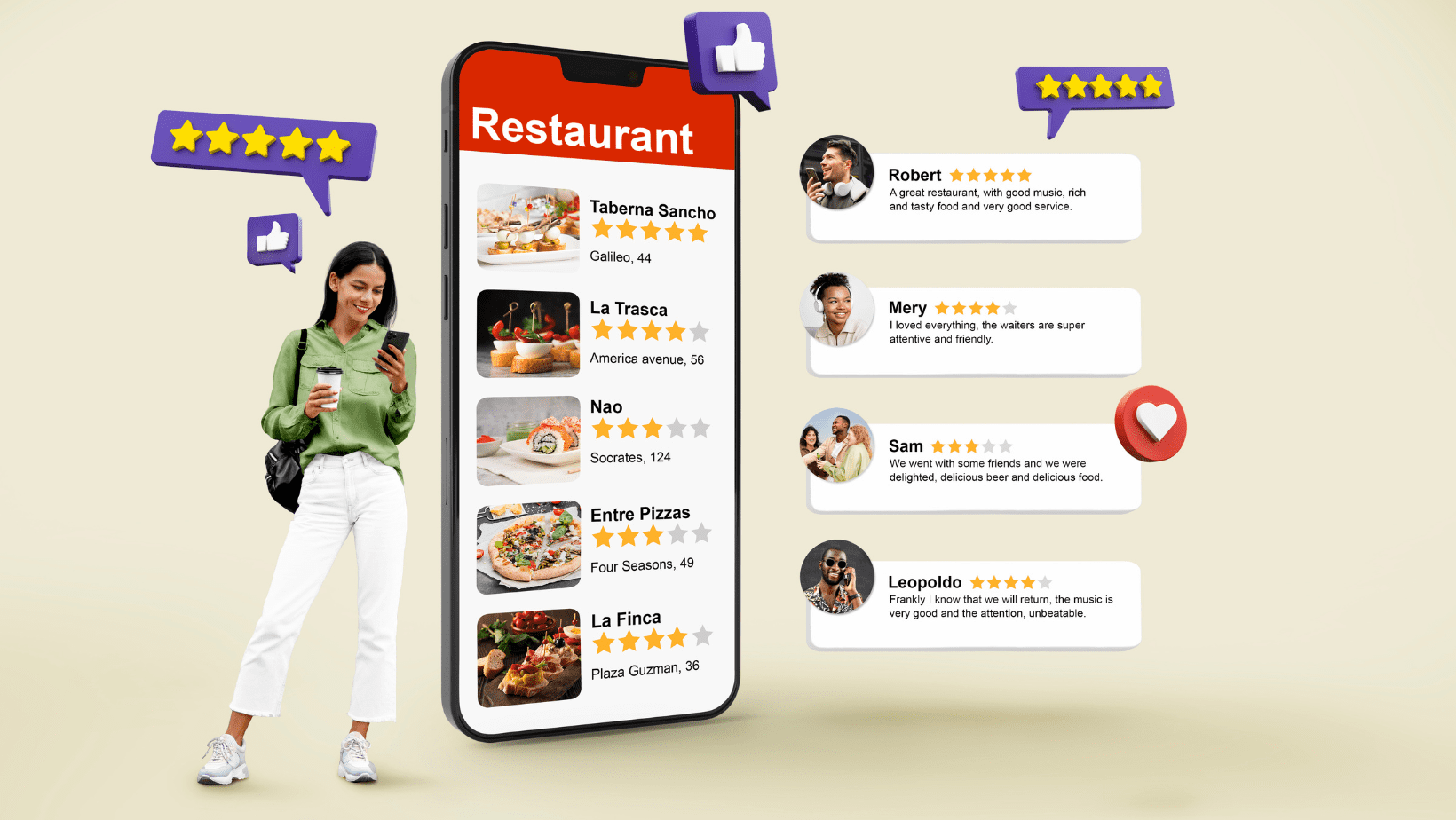In today's digital age, online reviews have become one of the most important deciding factors for consumers and businesses. More than 90% of shoppers read reviews before purchasing a product or service, and 79% trust an online review as much as a personal recommendation. Therefore, having an effective review management tool is not a luxury, but a necessity.
In this article, we present an updated comparison of the best review management platforms in 2025, along with their advantages, disadvantages, and ideal use cases. At the end, you'll also discover a powerful and emerging option that can help you centralize, respond to, and leverage every review your customers leave.

Why do you need a review management tool?
Having positive reviews on Google, Trustpilot, Facebook, or TripAdvisor is only part of the job. What's really important is being able to:
- Collect reviews from multiple platforms.
- Respond quickly to comments, both positive and negative.
- Analyze trends and identify areas for improvement in the customer experience.
- Automate responses and save operational time.
- Improve brand reputation and increase sales conversion.
Next, let's look at which solutions are leading the market this year.
1. wiReply – Intelligence and automation for your reviews
wiReply is one of the most innovative platforms that is rapidly gaining ground in the Spanish-speaking market. This tool combines the power of artificial intelligence with an intuitive interface that allows you to manage, respond to, and optimize reviews from a single location.
Unlike other platforms, wiReply is designed with entrepreneurs, personal brands, and small businesses in mind, and easily scales for larger teams.
What makes it stand out:
- AI to write personalized automatic responses based on the tone and content of each review.
- Integration with Google My Business, Facebook and other popular platforms.
- Centralized dashboard with metrics on impact, review volume, and reputational evolution.
- Spanish support and responsive human attention.
Ideal for: independent professionals, marketing agencies, and SMEs looking for efficiency without sacrificing human quality in their responses.
Cons
- Currently, it's primarily optimized for Google reviews, as these are the most commonly used sources by real businesses. However, integrations with other platforms are being developed to expand its reach in the near future.
2. Birdeye
Birdeye is one of the most comprehensive and established platforms for companies looking to gain a 360° view of their online reputation. It allows you to collect reviews from more than 150 sites, send automated surveys, and includes sentiment analysis features.
Pros:
- Integration with CRM and marketing platforms.
- Automation of review requests via SMS or email.
Cons:
- High cost for advanced plans.
- Its range of features is so wide that it can be somewhat overwhelming.
Ideal for: medium and large companies with multiple physical locations.
3. Podium
Podium focuses on local businesses and franchises. Its strengths are its ease of use and personalized support. The tool allows for automated review requests via SMS and also facilitates managing customer conversations.
Pros:
- Excellent mobile interface.
- Real-time chat tools.
Cons:
- High cost for advanced plans.
- Focused mainly on the North American market.
4. Trustpilot
Although Trustpilot is a review platform in its own right, it also offers a very powerful internal management tool. It's perfect for eCommerce or digital services companies that want to build trust through the visibility of their reviews.
Pros:
- High level of SEO visibility.
- Control and validation of suspicious comments.
Cons:
- High cost for advanced plans.
- It only manages reviews within its platform. It doesn't allow you to centralize reviews from multiple channels like Google or Facebook.
Ideal for: Digital businesses that sell products or services online.
5. ReviewTrackers
A tool that stands out for its ability to track detailed multiple locations and its focus on customer experience analysis.
Pros:
- Detailed reputation reports.
- Detection of recurring keywords.
Cons:
- Some advanced features require technical configuration.
- Limited customer support in Spanish.

How do you know which review management tool is right for you?
Choosing a tool to manage reviews isn't just about comparing features. It's about finding a solution that fits your business needs, your way of working, and your growth goals.
Before making a decision, it's a good idea to ask yourself some key questions:
- Do my customers usually leave reviews on one or more platforms?
- How much time am I spending responding to comments today?
- Am I missing out on opportunities by not reacting to a negative review in time?
- How could you use reviews to build more trust and more sales?
A good tool should not only help you centralize and respond faster, but also turn each review into an opportunity for loyalty, learning, and branding. It's also important that the solution you choose offers simplicity, intelligent automation, and a human approach. Because at the end of the day, reviews aren't data: they're people talking about their experience with you.
And it's precisely under this philosophy that wiReply was born, a tool designed to help you manage your digital reputation efficiently, empathetically, and professionally. With AI-generated responses tailored to your brand's tone, clear metrics, and an easy-to-use interface, wiReply transforms what was once a repetitive task into a real competitive advantage.

Conclusion: Managing reviews is no longer optional
Good review management can improve your reputation, increase your sales, and build customer loyalty. Now more than ever, listening to your customers and acting on their feedback is a competitive advantage. If you're looking for a modern, Spanish-language tool with a human focus and intelligent automation, we invite you to try wiReply for free and experience firsthand how it can transform your relationship with your customers and your digital reputation.

